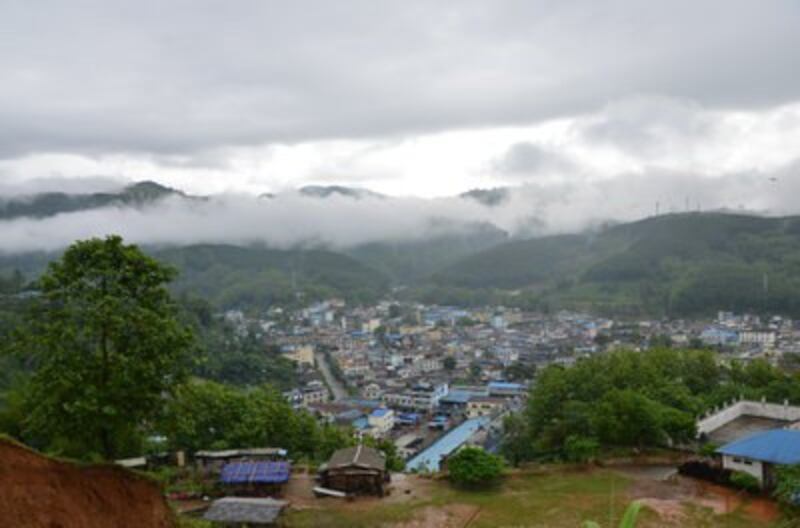Kachin rebels, who resumed fighting for an independent state north of Burma after a 17-year ceasefire, have said they will not lay down arms until the newly elected government agrees to provide the ethnic group with full political power and other rights.
La Nan, the joint secretary of the Kachin Independence Organization (KIO), accused the quasi-civilian government of refusing to acknowledge the rights of the Kachin people and negotiate on equal terms with the group.
“We want our own rights and own rules,” La Nan said in an interview with RFA. “They always tell us to do what they want us to do and won’t negotiate with us,” he said.
The KIO is the political wing of the Kachin Independent Army (KIA), a group that claims to number as many as 50,000 fighters, including soldiers on reserve service. Other estimates trim the number to around 10,000.
The KIA will not lay down its arms until a “truly democratic state is established in Burma,” La Nan said at the well-administered and fortified KIA headquarters in Laiza town, straddling the relatively porous border between China’s southern Yunnan province and Kachin state in northern Burma.
“You may ask why we keep arms if we want political power. We are dealing with people who are [also] holding arms,” he said.
“We cannot abandon our weapons at this time. When there is true unity and equal rights for our people, we will abandon our arms.”
‘A different path’
The group’s base of operations boasts a number of ministerial buildings for its political wing, a hydropower station that generates more than enough power for the entire town, and adequate training facilities.
According to sources within the KIA, the group even has its own facility for producing AK-47 rifles. Much of the army’s funding comes from the sale of jade and timber in the region.
La Nan said that even though it is waging an armed struggle, the KIO backs non-violent pro-democracy movements within Burma, such as Nobel laureate Aung San Suu Kyi’s National League for Democracy (NLD).
“We totally support those movements. We have the same cause, but are working along a different path. We cannot solve the problems we face only through armed revolution. We must employ non-violent methods as well,” he said.
“We completely support Aung San Suu Kyi and the NLD. We believe they are doing the right thing to form a democratic country. We cannot fully cooperate at this time, but we fully support their actions.”

Broken ceasefire
The KIA and the Burmese military ended a 17-year ceasefire arrangement on June 9, with each side accusing the other of instigating the fighting.
Government troops say the KIA escalated tension after entering a joint Chinese and Burmese hydroelectric project and seizing ammunition from security guards.
The KIA contends that the fighting was caused by a breakdown in talks after Burma’s government sought to bring the group under its control as part of a Border Guard Force (BGF).
The group has refused to join the BGF, though some armed groups have agreed to the government policy in exchange for some political representation and limited autonomy.
The Thailand-based Kachin News Group said Burma’s military had met with the KIA at its headquarters on June 17-18, but those talks appeared to have failed.
It said that military preparations had continued through the talks, resulting in little trust between the two sides.
Refugees flee
Meanwhile, some 10,000 Kachin refugees have fled the fighting and attempted to enter China in recent weeks.
The U.S. State Department called for a halt to hostilities in a statement Friday.
“We are particularly concerned by the reports of human rights abuses in the area, including reports of casualties, rape, and displacement of thousands of local residents,” the statement said.
The statement urged protection for persons fleeing the conflict and said that the recent violence underscores the need for an inclusive dialogue between the Burmese government and the country’s opposition and ethnic minority groups.
Rights groups have accused the Burmese military of carrying out a brutal counter-insurgency campaign in ethnic minority areas involving the rape, torture, and murder of villagers.
Local reports said the refugees were fleeing to escape being preyed upon by government forces, rather than because they feared the fighting itself.
Reported and translated by Khin Maung Soe for RFA’s Burmese service. Written in English by Joshua Lipes.
